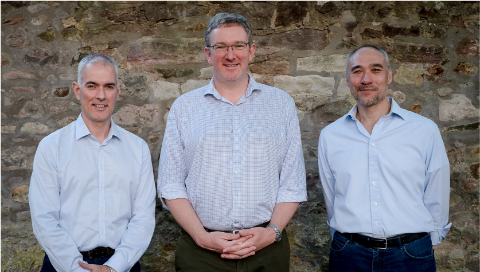AI is reshaping healthcare, offering promising solutions yet bringing forth many unforeseen challenges in implementation. As healthcare providers seek to integrate AI into their systems, you may encounter hurdles that demand strategic approaches for successful adoption.
To delve deeper into these challenges and learn from successful implementations, consider exploring Milton Keynes University Hospital's journey in this pre-recorded webinar featuring PACS Manager and IT Systems Lead Andy Scott.
1. Identifying the Challenges
Embarking on AI adoption in healthcare is seldom straightforward. A challenge lies in the varied AI offerings flooding the market. Each claims high accuracy and efficacy, but finding the perfect fit for your ‘pain points’, use-cases, and organizational requirements remains a daunting task.
Furthermore, the healthcare sector’s procurement process adheres to stringent regulations, often elongating the acquisition of new technologies. This regulatory complexity adds layers of challenge to obtaining AI solutions promptly and efficiently
This is where Platform providers play a crucial role. They streamline the procurement process, offering a centralized platform for acquiring AI solutions. Additionally, these providers offer established methodologies to evaluate and deploy algorithms that best suit your unique needs. This support simplifies decision-making, enabling you to adopt AI solutions more effectively.
2. Procurement and Regulatory Challenges
The procurement of AI is a challenge in and of itself. Existing frameworks and guidelines necessitate compliance, meaning healthcare organizations must navigate complex pathways to acquire new technologies. The current lack of standardized processes for AI in healthcare procurement further exacerbates the challenge, often leaving organizations in a maze of options.
A smart solution to overcome these obstacles is via an AI platform designed to streamline procurement by offering a single point of access and integration to a broad ecosystem of vetted algorithms. A centralized platform can not only simplify the complex procurement process but also ensure compatibility, quality assurance and regulatory compliance – easing the burden on healthcare providers to leverage AI effectively.
3. Establishing Governance and Strategy
Developing a governance strategy is critical for steering through the uncharted territories of AI adoption. Creating an AI steering committee involving key stakeholders – from clinical and IT leads to finance and procurement representatives - is essential. This committee serves as a platform to align objectives, assess solutions and ensure compliance with regulations, addressing challenges and concerns comprehensively and efficiently.
4. Validation and Evaluation
One of the critical steps in AI adoption is validating solutions for local applicability. To ensure success healthcare organizations must with work specialists to evaluate algorithms against their specific patient data. Blackford’s rigorous Measure methodology ensures that the AI functions effectively within customers’ unique environments, minimizing risks associated with data bias and enabling trust in the technology.
5. Building Partnerships and Support Networks
Creating a robust support network is crucial for successful AI adoption. Partnering with an established Platform partner can significantly streamline workflow integration and reduce risks. It’s not just about minimizing implementation challenges; it’s about fostering continuous improvement. A reliable support system and an ongoing learning program are vital for seamless post-implementation operations. Through a Platform partnership, the focus extends beyond mere integration to a dynamic environment where AI evolves with the hospital’s changing needs and advancements in healthcare technology.
Key takeaway
AI adoption in healthcare presents a landscape of challenges, but with strategic planning and collaboration, these obstacles can be overcome. Effectively navigating procurement complexities, governance and local validation, while harnessing the expertise of a trusted Platform partner, are crucial steps toward achieving success.
Milton Keynes University Hospital is an example of a healthcare provider which approached all of these challenges head-on, transformed its approach to AI and is now seeing tangible benefits. Watch PACS Manager and IT Systems Lead Andy Scott of MKUH as he shares their journey in this pre-recorded webinar.











